Delta Airlines offers special assistance for passengers who require additional support during their travels. Here’s an overview of the various types of Delta special services available:
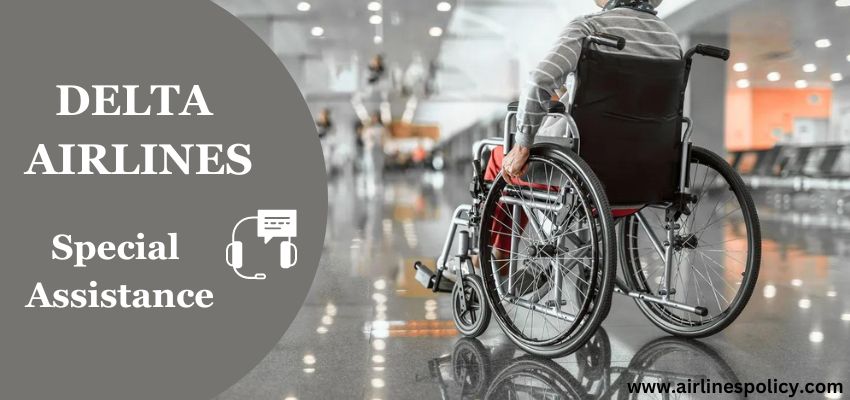
- Wheelchair assistance
- Special meals
- Traveling with service animals
- Passengers who need medical oxygen
- Passengers with visual or hearing impairments
- Passengers with cognitive and developmental disabilities
To request special assistance, passengers should contact Delta Airlines at least 24 hours before their scheduled departure. The airline will make every effort to accommodate passengers with special needs.
- What kind of assistance would be provided to the passengers with cognitive disability by Delta?
- Multi-sensory rooms
- Airport assistance
- Traveling with a caretaker
- In-Flight Assistance
- Communication Assistance
- Wheelchair Assistance offered by the Delta Airlines
- What are the requirements for bringing a service animal on a Delta flight?
- Documentation
- Health and vaccination requirements
- Type of animal
- Behavior Requirements
- Space Requirements
- What are the resources available for flying with Delta Airlines if you’re blind, have low vision, or if you have a hearing impairment?
- What assistive or medical devices can passengers bring on board Delta Airlines flights?
- What are the guidelines for passengers traveling with medical devices on a Delta flight?
What kind of assistance would be provided to the passengers with cognitive disability by Delta?
Delta Airlines provides special assistance to passengers with cognitive and developmental disabilities to help make their travel experience as comfortable and stress-free as possible. The specific types of assistance provided may vary depending on the passenger’s individual needs and requirements. However, here are some examples of the types of assistance that Delta Airlines may provide:
Multi-sensory rooms
Passengers who need a respite from the hustle and bustle of a busy airport can use multi-sensory suites. Talk to one of the Delta airlines representatives and let them know you want access to the multi-sensory rooms.
| Airport | Room Location |
| Hartsfield Jackson International Airport | F Concourse (Delta Designed) |
| New York LaGuardia International Airport | Terminal C |
| Pittsburgh International Airport | A Concourse near A9 |
| San Diego International Airport | Between TSA entrance and exit |
| Seattle tacoma International Airport | Near Level A Gates |
| Birmingham Shuttlesworth International Airport | B Concourse near Chick Fil-A |
| Portland International Airport | D Concourse near D11 |
| Myrtle Beach International Airport | Near baggage claim |
| Dublin Airport | Near 400 Gates |
Note – In order to provide passengers the chance to become accustomed to flying before departure, some multi-sensory rooms include mood lighting, music, and a small aircraft mock-up.
Airport assistance
Delta Airlines’ special services team provides special assistance to passengers with cognitive disabilities at the airport. This may include –
- Wheelchair assistance
- Assistance with navigating through the airport.
- Assistance with check-in on Delta airline, baggage, and security screening
- Assistance with boarding the connecting flight.
Traveling with a caretaker
If necessary, you can buy a ticket for a friend or personal care assistant to travel with you. In the following situations, Delta may ask you to make arrangements for a safety assistant to travel with you to the airport on the day of departure:
- If you find it difficult to understand or follow safety-related instructions.
- If your hearing and vision impairments prevent you from communicating with Delta staff members.
- If you have a mobility handicap that precludes you from actively assisting in your own evacuation during an emergency.
- Passengers who do not have a ticket but need to assist a customer are permitted past security checkpoints.
In-Flight Assistance
Flight attendants can assist passengers with cognitive disabilities in finding their seats, storing their luggage, and getting settled in for the flight.
Communication Assistance
Delta Airlines can provide communication assistance to passengers with cognitive disabilities who have difficulty communicating their needs or understanding instructions. This may include the use of visual aids. You can request one by filling out the Accessibility Service Request Form under the My Trips section. Passengers can also call the Delta special service phone number at +1-404-209-3434.
Wheelchair Assistance offered by the Delta Airlines
Delta Airlines provides wheelchair assistance to passengers with disabilities or limited mobility, ensuring that they have a comfortable and seamless travel experience. Here is everything you need to know about the wheelchair assistance offered by Delta Airlines:
Types of wheelchairs
Delta Airlines offers several types of wheelchair assistance –
- Airport wheelchair – Delta airlines have wheelchair drivers that can help passengers to get to the gate, through security and the terminal
- Aisle chairs – Specially fitted aisle wheelchairs are utilized to assist passengers in getting to and from their seats at the time of boarding and disembarkation by Delta’s wheelchair attendants. Please be aware that aisle wheelchairs are not self-propelled.
- Onboard wheelchairs – Most of Delta’s aircraft include an onboard wheelchair that is intended to be used to access the restroom. These onboard wheelchairs may not fit inside the onboard restroom and can only be used with a flight attendant’s assistance. A wheelchair is not provided on board any aircraft with fewer than 50 seats.
- Bringing your own wheelchair – With Delta airlines, passengers can bring manual and battery-operated wheelchairs, carts, scooters, and any supplemental prosthetic devices, in accordance with their needs.
To book wheelchair assistance on Delta, take note of the following –
- You may order this wheelchair service in My Trips or by calling 404-209-3434. Tell a Delta agent that you need a wheelchair delivered to your departure gate when you get to the airport.
- Be sure your wheelchair or other assistive devices will fit on the plane by the Delta airlines checked baggage calculator.
- Print and complete the Mobility Device Handling Form before arriving at the airport.
What are the requirements for bringing a service animal on a Delta flight?
Delta’s special services desk allows passengers with disabilities to bring service animals on their flights, but there are certain requirements that must be met. Here are the general requirements for bringing a service animal on a Delta flight:
Documentation
Passengers with disabilities who are traveling with a service animal must provide a US DOT Service animal form that verifies the animal’s health, training, and behavior. In addition, passengers must submit –
- Accessibility Service Request Form for travel booked 48 hours or more before scheduled departure. Passengers can access this form through the My Trips section.
- Passengers must additionally submit a DOT Relief Attestation Form for flights spanning 8-plus hours.
Health and vaccination requirements
Service animals must be in good health and up-to-date on their vaccinations. Dogs must wait a further 30 days for the rabies vaccine to take effect after receiving it at least 12 weeks of age.
Type of animal
Delta allows service dogs, including trained psychiatric service dogs, on their flights. However, they do not allow emotional support animals on their flights.
Behavior Requirements
Service animals must be trained to behave properly in public settings. They must be under the control of their owner at all times and cannot disrupt the flight or other passengers. The airline will refuse transportation if it exhibits aggressive behavior such as –
- Growling or excessive barking
- Bouncing off passengers, flight attendants, or employees
- Taking a dump in the cabin or gate area
- Using seat back tray tables to dine.
Space Requirements
Service animals must be able to fit at the passenger’s feet, under the seat, or in the lap (if the animal is small enough), without obstructing the aisle or other passengers.
What are the resources available for flying with Delta Airlines if you’re blind, have low vision, or if you have a hearing impairment?
Delta Airlines provides a variety of resources for passengers who are blind, have low vision, or have a hearing impairment to ensure a comfortable and safe travel experience. Here are some of the resources available under Delta’s special service request:
- Special assistance -. The airline has a dedicated department that helps passengers with boarding, deplaning, and navigating the airport. Passengers can contact the airline through the Accessibility Service Request form accessible in the Delta My Trips section. Passengers can call the accessibility assistance line at 404-209-3434.
Delta Special Services, to assist with accessibility needs. You can contact Delta’s Special Services team to request assistance at any time before or after booking your flight.
- Guide and service dogs – Passengers with the guide or service dogs must contact Delta’s Special Services team to provide advance notice of their travel plans and to complete the necessary documentation.
- Boarding and deplaning assistance – Delta Airlines provides boarding and deplaning assistance for passengers with disabilities. The airline offers pre-boarding for passengers who require extra time to board the aircraft, and Delta’s Special Services team can also arrange for wheelchair assistance.
What assistive or medical devices can passengers bring on board Delta Airlines flights?
Delta airlines support the following medication or medical devices before you arrive at the airport –
Portable Oxygen Concentrators
Delta Airlines allows passengers to bring portable oxygen concentrators (POCs) on board as carry-on or checked baggage. They must meet the following requirements –
- Passengers need to complete the POC Approval and Battery Approval Request form and email it to the airlines. Passengers can also call the airlines directly at +1-866-692-0040.
- Must bring enough fully charged batteries to power the POC for 150% of the flight time, including any connections or layovers. These batteries must be stowed in carry-on baggage and must be protected from damage or short-circuiting.
- Must comply with FAA safety regulations regarding the use of POCs during flight.
- Must arrive at the airport early to allow for extra time to check in and go through security screening.
- They may also need to provide medical documentation or a physician’s statement indicating their need for the POC.
CPAP, Bi-PAP, VPAP, respirators, and ventilators
Passengers can carry devices as carry-on bags provided –
- Passengers must bring enough fully charged batteries to power the device for 150% of the flight time, including any connections or layovers.
- Comply with FAA safety regulations regarding the use of these devices during flight.
- A manufacturer label stating compliance with RTCA DO-160 Section 21 Cat H, indicating that the PAP device can be used on an aircraft is required.
Note – The aforementioned requirements would be applicable to other assistive devices such as Pumps, and suction devices.
EFT Devices
Devices called “Electric Field Treatment” (EFT) systems employ a weak electrical field to cure cancer. Delta has authorized the usage of two gadgets onboard:
- Model – NovoTTF-100A, manufactured by Novocure, is authorized for use at all flight levels. For domestic flights, you are only allowed two spare batteries in your carry-on, which must be appropriately wrapped. International flights are not allowed to bring extra batteries.
- Model: NovoTTF-200A, manufactured by Novocure, is only permitted for usage above 10,000 feet. Should be kept in a suitable location for taxiing, taking off, and landing.
Regardless of how long you may choose to use the gadget as a carry-on item, passengers traveling with an assistive device must also have a battery life equivalent to 150% of their real flight time.
What are the guidelines for passengers traveling with medical devices on a Delta flight?
Delta Airlines has specific requirements for bringing medical devices, including portable oxygen concentrators (POCs), on their flights. Here are the general requirements under Delta airline’s special member services :
- Notify Delta Airlines in advance
- Provide documentation
- Ensure the device is approved for in-flight use
- Ensure the device is properly labeled
- Ensure the device is stowed properly
For more specific information on bringing medical devices on Delta Airlines flights, including information on POCs, passengers should visit Delta’s website or contact their customer service.
In conclusion, Delta Airlines offers a range of special assistance services to ensure that all passengers, including those with disabilities or medical conditions, can travel safely and comfortably. These services include wheelchair assistance, special meals, medical oxygen, and personal care attendants, among others. Delta’s special services team is committed to ensuring that all passengers have a positive travel experience and is dedicated to accommodating the needs of those who require special assistance.
Frequently Asked Questions (FAQs)
What is the special services line at Delta?
Call Delta’s special assistance team at 404-209-3434.
Where is the special service request on Delta?
Go to the Delta Airlines website and click on “My Trips” at the top of the homepage to request all sorts of special assistance services.
Who qualifies for special assistance at the airport?
Passengers who use wheelchairs or other mobility aids, have visual or hearing impairments or require extra assistance during boarding, deplaning, or connecting flights.
How do I book assistance at the airport?
When booking your flight, indicate that you require special assistance. You can do this by selecting the appropriate options on the airline’s website or by calling the airline’s customer service department.
Can airlines ask for proof of disability?
Yes, airlines may ask for proof of disability or a medical certificate to ensure that they can provide the necessary assistance and accommodations for passengers with disabilities.
How do I get special assistance on a flight?
Contact the airline in advance to let them know what kind of assistance you need. You can do this by calling the airline’s customer service department or by indicating your needs during the booking process.
What are the types of special service requests?
There are various types of special service requests that passengers can request such as wheelchair assistance, Medical equipment, Seating accommodations, Language assistance, and more.
What is the appropriate tip for wheelchair assistance at the airport?
Choose the wheelchair assistance service 48 hours prior to departure to avoid any hassles.

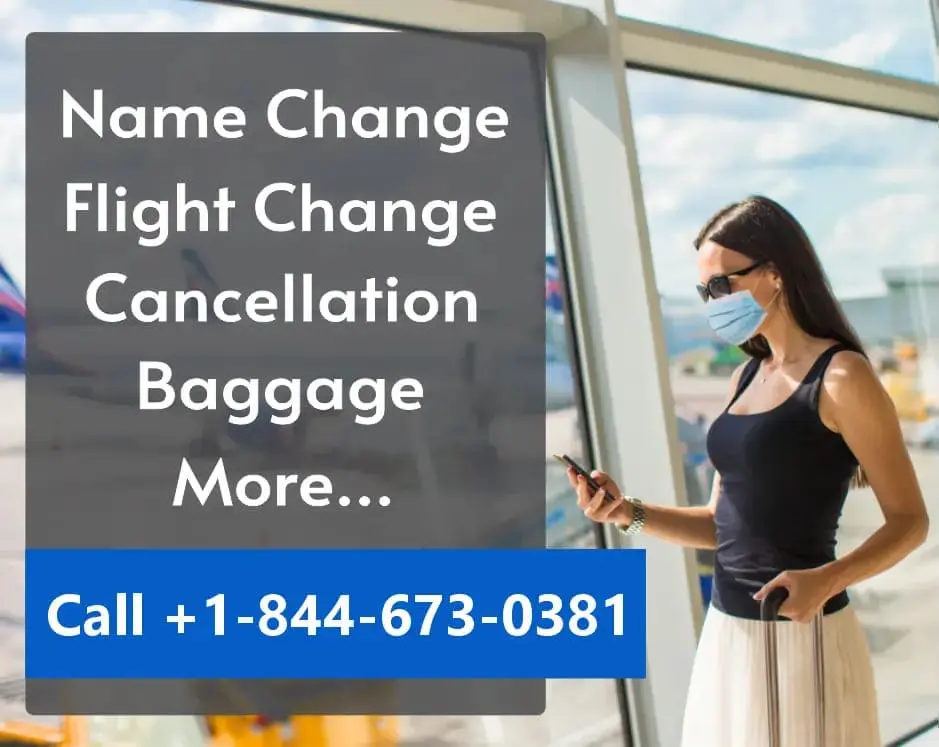
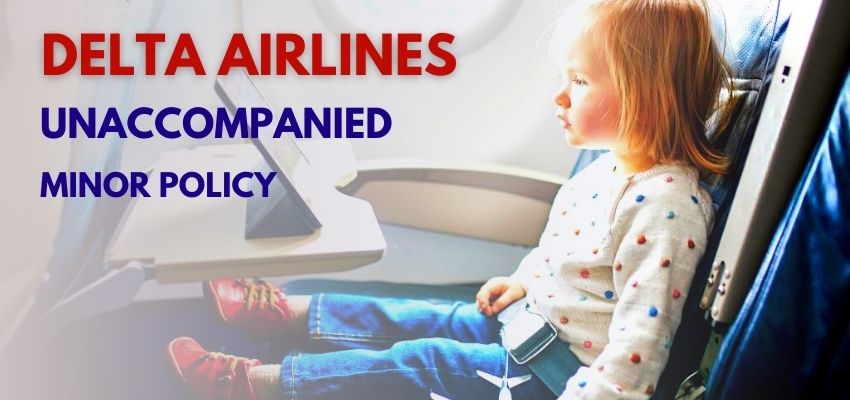 Delta Unaccompanied Minor Policy
Delta Unaccompanied Minor Policy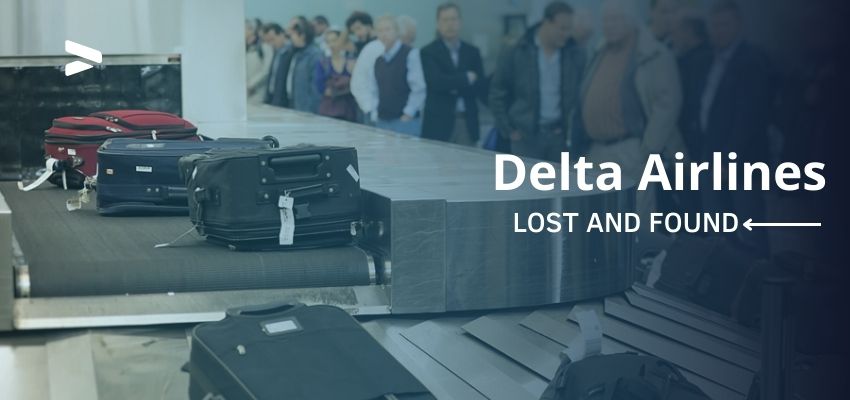 Delta Lost and Found
Delta Lost and Found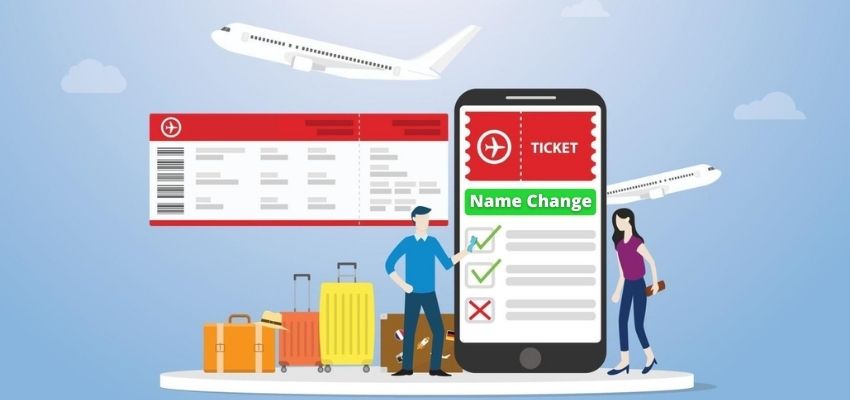 Delta Airlines Change Name On Ticket – Complete Guide
Delta Airlines Change Name On Ticket – Complete Guide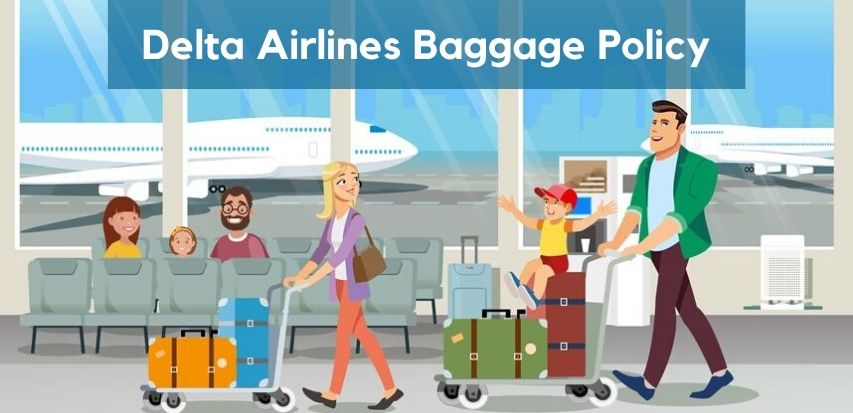 Delta Airlines Baggage Policy
Delta Airlines Baggage Policy Delta Airlines Cancellation Policy
Delta Airlines Cancellation Policy Delta Airlines Check in Policy
Delta Airlines Check in Policy Delta Airlines Pet Policy
Delta Airlines Pet Policy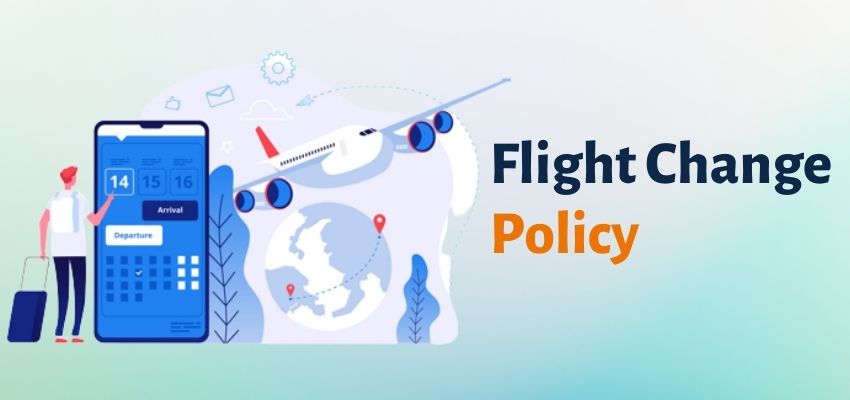 Delta Flight Change Policy
Delta Flight Change Policy
I require wheel chair assistance At Heathrow and also in Atlanta -I have today booked my tickets
Outbound -Sat Sept 16th
Return-Thursday Sept 28th (USA) and Friday 29th (UK)